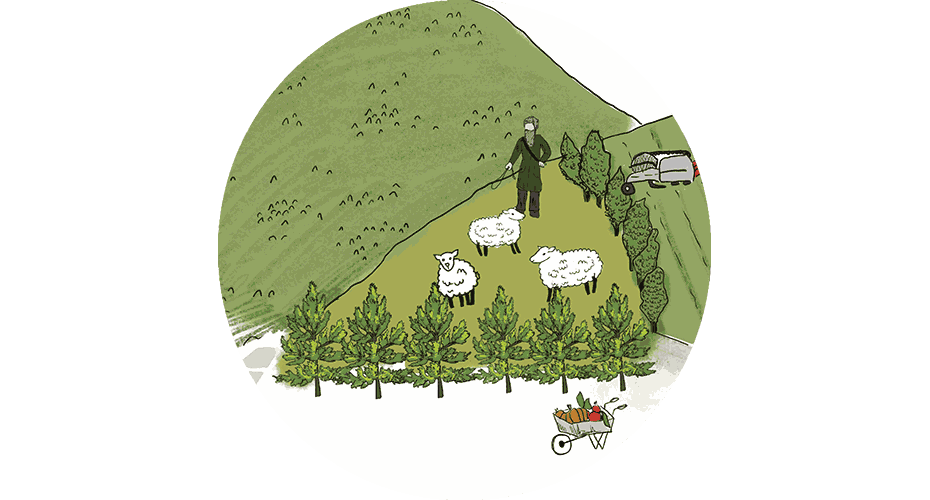Biodiversity and Human-Animal Relations
Research conducted by Exeter Food members under this theme includes work on how agriculture affects pollinator species and mitigation of its impact, historical perspectives on human attitudes toward the consumption of animals, the feeding of animals by humans, and the protection of animal species threatened by human food systems, with work conducted in the UK and around the world.
Juliet Osbourne, who holds a chair in Applied Ecology, researches pollination and pest regulation with specific interests in conserving and promoting bee populations and protecting and promoting wild flower and crop pollination by working with beekeepers, conservation organisations and local land-owners. Neuroethologist Nathalie Hemple de Ibarra studies bee navigation, foraging and crop pollination in agricultural landscapes in the UK and India, with a focus on how pollen influx varies with environmental parameters in agricultural and urban landscapes, as well as how the nutritional state of bees affects their behaviour. Ecologist Orly Razgour researches how agriculture, including specific crop types and the wider landscape, impacts the composition of bat species, their genetic connectivity, and their behaviour (e.g., predation on pest species), with projects in the Israeli desert, the wider Mediterranean and European regions, the Ethiopian Highlands, and Assam, India.
Archaeologist Naomi Sykes takes a deep-time approach to the study of bio-cultural heritage and human-animal-environmental health, with a focus on animals such as chickens, fallow deer, brown hares, and rabbits that have been spread around the planet by humans, and the timing and circumstances of their incorporation into different environments and cultural (food) systems. She is also PI of a Wellcome Trust funded project exploring the drivers and consequences of animal feeding (pet food, within zoos and human feeding of wildlife) for human, animal and environmental health. Sean Doherty is a research fellow working with Sykes and studying the introduction of the rabbit and chicken to Britain through the lens of the modern societal and wildlife management policy debate over ‘native’ versus ‘alien’ species, as well as the history of anthropogenic feeding of cats and its effects upon sustainability in the pet food industry, and the history of bird feeding and its impact on bird morphology, behaviour and health. Angela Cassidy—who lectures in science and technology studies—works with Sykes as well on the Wellcome Trust project, studying the causes and consequences of animal feeding; she also has expertise in the regulation of zoonotic diseases in the food chain, having worked on the history and present forms of the longstanding UK debate over whether to cull wild badgers in order to manage bovine TB, and she has a particular interest in public polarisation of rural and food politics (e.g., animal welfare, veganism).
Psychologist Nadira Faber conducts research on what humans see as appropriate food, especially why people see some animals (but not others) as appropriate for consumption, and she explores psychological factors that might contribute to the reduction of meat consumption. Luke McGuire, also a psychologist, works with Faber, and examines the differing views of children, adolescents and adults regarding the moral worth of animals and their permissible treatment by humans. Psychologist Natalia Lawrence explores how attitudes and emotions towards meat (for example, feelings of disgust) shape people’s diets. Paul Young, who is Associate Professor of Victorian Literature and Culture, has built upon the foundation of his research on meat in Victorian adventure fiction to explore 21st century issues of the human health, animal welfare and environmental concerns associated with meat production and consumption, convening a Wellcome Trust-funded symposium bringing historians and literary scholars into dialogue with social scientists and scientists tasked with finding solutions to contemporary meat-related problems, including researchers pioneering laboratory-grown meat and developing markets for insects. Sociologist Mike Michael also has an interest in human-animal relations, as well as people’s views on artificial meat.
Biologist Andrew Griffiths uses citizen science to sample shark products across Europe, as well as studying the potential of DNA barcoding to investigate sales of endangered and prohibited species such as ray and skate products in Greece.




